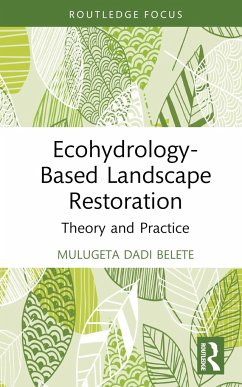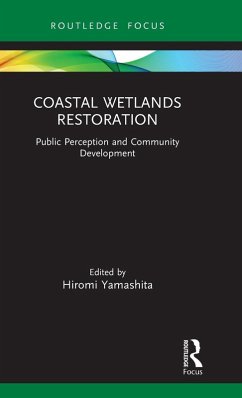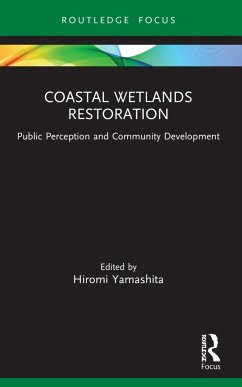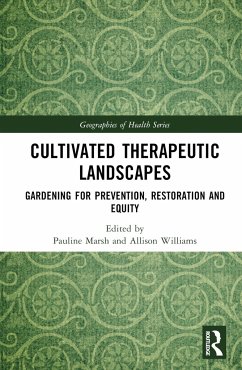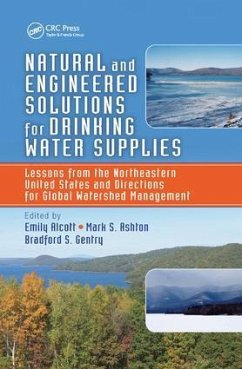
Ecohydrology-Based Landscape Restoration
Theory and Practice
Versandkostenfrei!
Versandfertig in 6-10 Tagen
22,99 €
inkl. MwSt.
Weitere Ausgaben:

PAYBACK Punkte
11 °P sammeln!
This book provides an introduction to a fairly new approach to natural resources management practice entitled ecohydrology-based landscape restoration.Ecohydrology-based landscape restoration integrates landscape restoration practices with ecohydrology science and principles in order to help address the limitations of current management practices in developing countries. Focusing on both the theory and practice of implementing new management practices, the book includes conceptual designs and practical demonstrations for a variety of sites, including hillsides, farmlands, gullies, riparian buf...
This book provides an introduction to a fairly new approach to natural resources management practice entitled ecohydrology-based landscape restoration.
Ecohydrology-based landscape restoration integrates landscape restoration practices with ecohydrology science and principles in order to help address the limitations of current management practices in developing countries. Focusing on both the theory and practice of implementing new management practices, the book includes conceptual designs and practical demonstrations for a variety of sites, including hillsides, farmlands, gullies, riparian buffers and wetlands, while also drawing on field research conducted in Ethiopia. The book puts forward principles for improving current practices, which include the better integration of hydrological and ecological concerns, the greater involvement of local communities, the adoption of indigenous practices, the establishment of green and semi-grey infrastructure as an ecohydrological systemic solution and the necessity of taking an adaptive approach to managing landscapes.
This book will be of great interest to students and scholars of water resource management, ecohydrology and landscape restoration as well as professionals involved in the restoration of landscapes in developing countries.
Ecohydrology-based landscape restoration integrates landscape restoration practices with ecohydrology science and principles in order to help address the limitations of current management practices in developing countries. Focusing on both the theory and practice of implementing new management practices, the book includes conceptual designs and practical demonstrations for a variety of sites, including hillsides, farmlands, gullies, riparian buffers and wetlands, while also drawing on field research conducted in Ethiopia. The book puts forward principles for improving current practices, which include the better integration of hydrological and ecological concerns, the greater involvement of local communities, the adoption of indigenous practices, the establishment of green and semi-grey infrastructure as an ecohydrological systemic solution and the necessity of taking an adaptive approach to managing landscapes.
This book will be of great interest to students and scholars of water resource management, ecohydrology and landscape restoration as well as professionals involved in the restoration of landscapes in developing countries.





